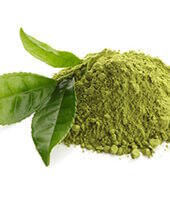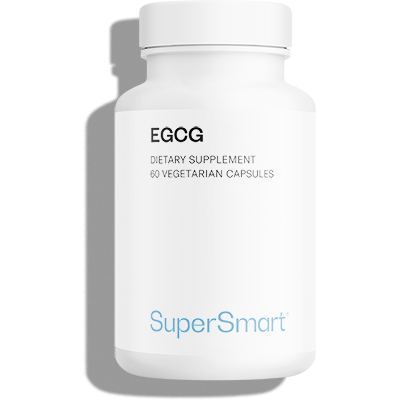20-02-2017
Green tea: the benefits of EGCG on energy expenditure
 The popularity of green tea in many parts of the world is not solely due to its taste. Green tea’s exceptional composition means it is also renowned for offering a host of health benefits. Among the components found in green tea are catechins including epigallocatechin gallate or ECGC. Part of the large family of flavonoids, these compounds have been the subject of extensive study, but while EGCG is frequently highlighted for its antioxidant properties, it is less well-known for its effect on energy metabolism. However, according to a meta-analysis published in the Journal of Nutritional Biochemistry1, this molecule may indeed offer beneficial effects for energy expenditure.
The popularity of green tea in many parts of the world is not solely due to its taste. Green tea’s exceptional composition means it is also renowned for offering a host of health benefits. Among the components found in green tea are catechins including epigallocatechin gallate or ECGC. Part of the large family of flavonoids, these compounds have been the subject of extensive study, but while EGCG is frequently highlighted for its antioxidant properties, it is less well-known for its effect on energy metabolism. However, according to a meta-analysis published in the Journal of Nutritional Biochemistry1, this molecule may indeed offer beneficial effects for energy expenditure.
Effect of EGCG consumption on energy metabolism
In this review of all published data on EGCG, Japanese researchers examined various parameters such as energy expenditure, lipid oxidation and respiratory quotient. The results of their analysis were conclusive: there is an association between EGCG intake, increased energy expenditure and decreased respiratory quotient. This means that supplementing with EGCG could improve calorie expenditure, and thus reduce total adiposity. Their review confirms that green tea catechins, including EGCG, have a beneficial effect on the body’s energy metabolism.Potential of EGCG for preventing excess weight and obesity
This new review adds to the many studies published on EGCG, summarised in our article « Epigallocatechin gallate (EGCG), a very powerful antioxidant with multiple benefits». This article mentions EGCG’s potential for increasing energy expenditure and reducing abdominal fat mass. Based on these studies, dietary supplements have been specifically formulated from an extract of green tea standardised to 95% EGCG. This optimal dose provides a simple way of capitalising on all the antioxidant and energy expenditure benefits of EGCG.> Source :
1. Mahendra P. Kapoor, Masaaki Sugita, Yoshitaka Fukuzawa, Tsutomu Okubo, Physiological effects of epigallocatechin-3-gallate (EGCG) on energy expenditure for prospective fat oxidation in humans: A systematic review and meta-analysis, Journal of Nutritional Biochemistry, May 2017Volume 43, Pages 1–10.
Order the nutrient mentioned in this article

Green tea EGCG supplement for fighting oxidative stress and excess fat, two factors in the ageing process
www.supersmart.comFurther reading
05-08-2016
Here’s a simple way to burn calories without having to undertake strenuous exercise - or even move an inch.Scientists have discovered that the body uses...
Read more04-09-2019
A study published in Hypertension , the journal of the American Heart Association, has provided new evidence of this dietary supplement’s effectiveness for reducing the...
Read more13-02-2017
If you’re wondering about the benefits of zinc or how effective it is, a study published in The American Journal of Clinical Nutrition in 2016...
Read more© 1997-2026 Fondation pour le Libre Choix
All rights reserved
All rights reserved
Free
Thank you for visiting our site. Before you go
REGISTER WITHClub SuperSmart
And take advantage
of exclusive benefits:
of exclusive benefits:
- Free: our weekly science-based newsletter "Nutranews"
- Special offers for club members only

















